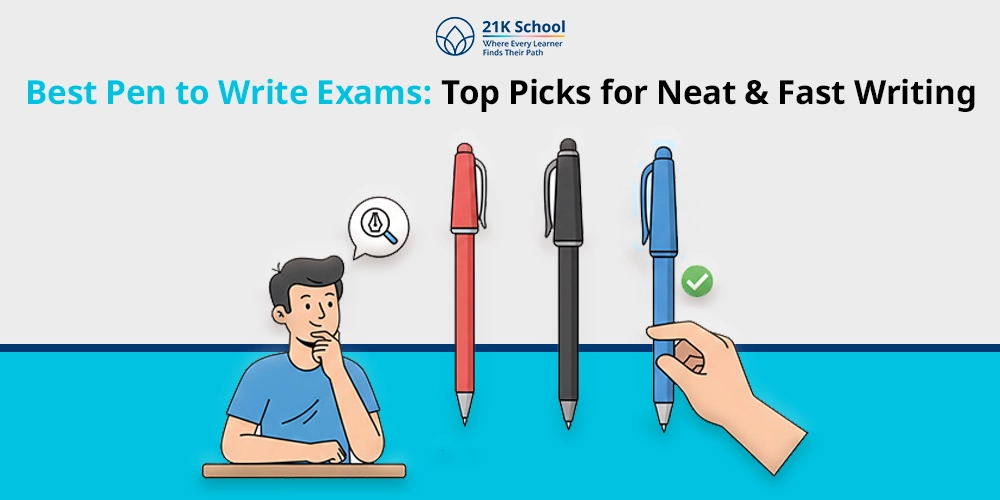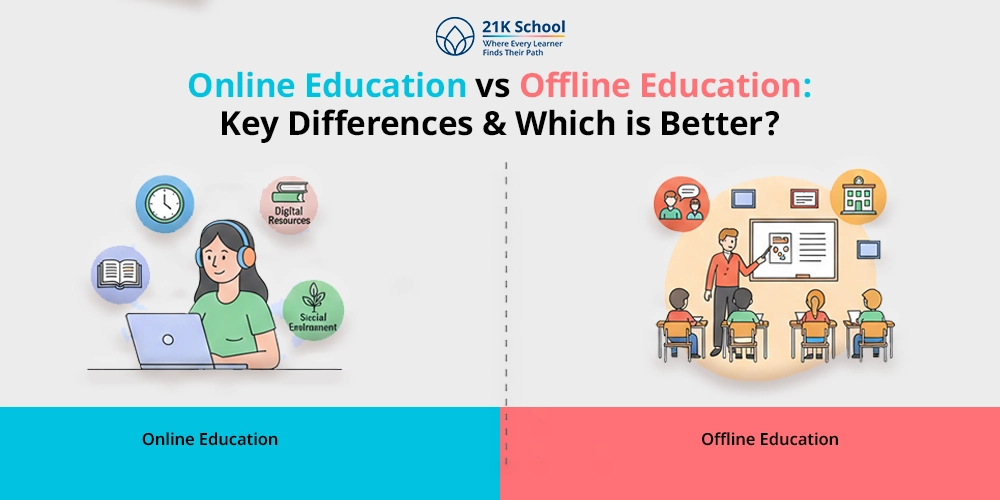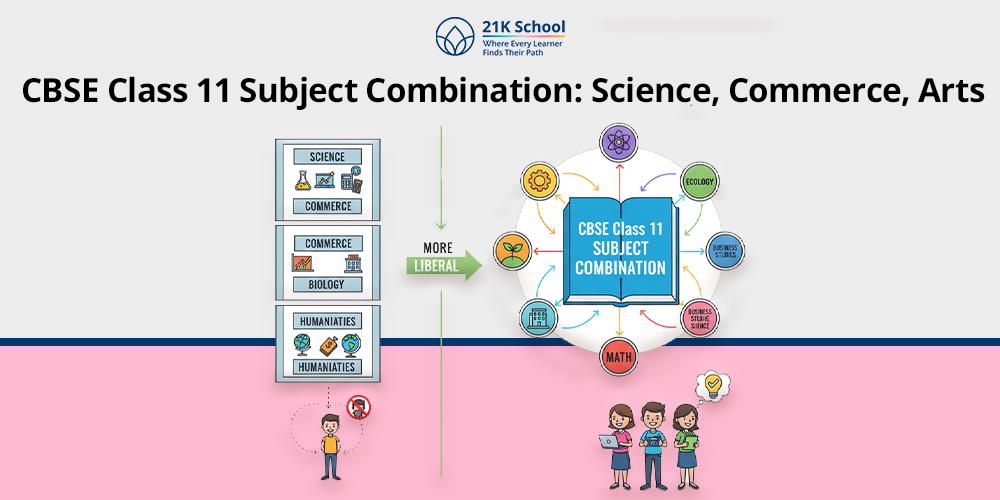
Are you going in Class 11 and want to choose subject combinations? Here is how many subject combinations can you choose?
Class 11 is one of the important points in most education systems when students are required to choose among different streams in accordance with their interests in studying and their future professional desires.
Learn how to choose the right stream in class 11 .
The main streams that one can get are commonly Science, Commerce and Humanities/Arts. All these streams offer different sets of subjects, which offer different career opportunities.
The CBSE board has recently altered its subject selection policies in order to provide more flexibility and reality in the selection done by the students regarding the streams. According to CBSE, students are now able to select a broad range of subjects in the list of obligatory curriculum .
Before choosing your Class 11 subject combination, read this practical guide to Class 11 that will help you make the right decision.
Contents
What is CBSE Class 11 Subject Combination?
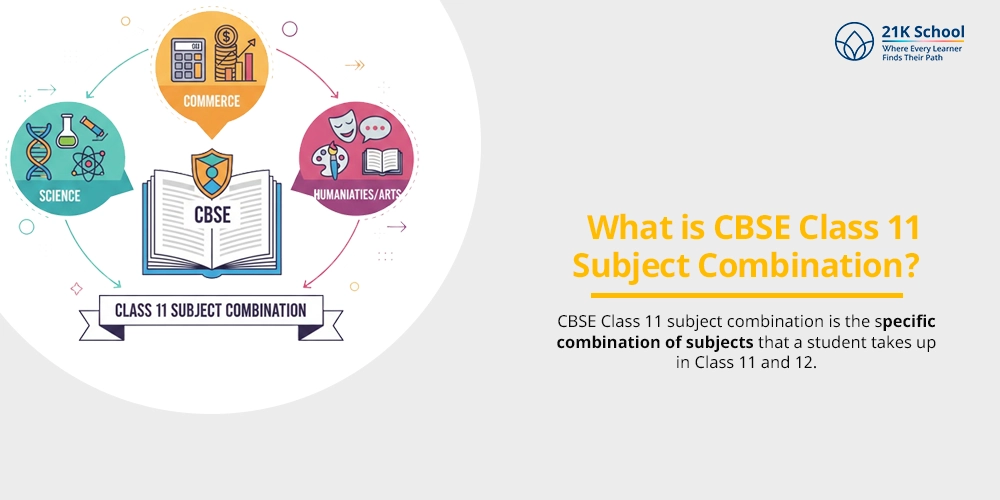
CBSE Class 11 subject combination is the specific combination of subjects that a student takes up in Class 11 and 12. Under the present policy of CBSE, it has been far more liberal than the old system of streams, which was too strict.
In Class 11, they have to take a minimum of 5 and a maximum of 9 subjects (including internal assessment subjects). It is important to note here that 7-9 subjects are internal assessment only (covering Health & Physical Education, Work Experience, General Studies).
The CBSE also allows students to have one extra subject on top of the five subjects as the main subject and this may serve as an alternative in the case the students fail at any of the elective subjects.
All of these sets of topics allow students to structure their learning along with their capabilities and demands, thus allowing them to prepare for tertiary education and future work.
CBSE Class 11 Subject Combination
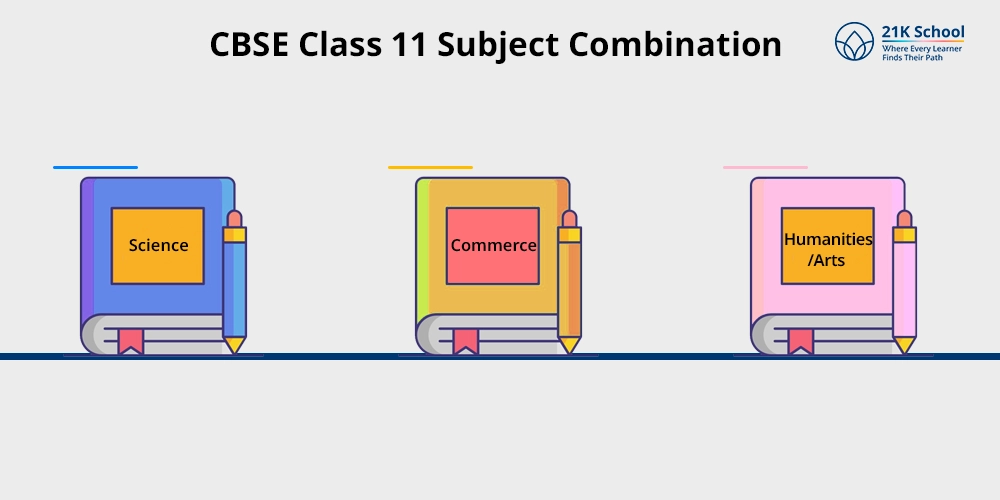
The CBSE subjects combination of 11th grade is provided in streams that are Science, Commerce and Arts. Under the National Education Policy (NEP) 2020, CBSE has eliminated rigid stream divisions. Students can now choose any combination of subjects from different streams without being confined to Science, Commerce, or Arts categories.
Every stream possesses a subject combination which allows students to choose the subjects depending on their adaptability. This is where you will be able to check the subject combination of all three streams.
1. Science

The Science stream subjects that are now mandatory include Physics, Chemistry, and some of the compulsory subjects include either Mathematics or Biology in addition to English as a compulsory language.
Still more elective subjects, such as Computer Science, Informatics Practices, Physical Education, Economics, Psychology or Fine Arts are also optional and may be offered by students depending on the school they attend. PCM (Physics, Chemistry, Mathematics) and PCB (Physics, Chemistry, Biology) are the most common.
(However, the availability of the subjects will vary as per the schools offering)
| Subjects | Programs |
| Subject 1 | English |
| Subject 2 | Physics |
| Subject 3 | Chemistry |
| Subject 4 | Mathematics/ Psychology/ Artificial Intelligence/ Legal Studies/ History/ Yoga/ Hindustani Music, Percussion Instruments/ Applied Arts |
| Subject 5 | Computer Science/ Biology / Economics/ Physical Education/ Fashion Studies/ Hindustani Music – Vocal/ Hindustani Music, Percussion Instruments/ Early Childhood Care & Education |
2. Commerce
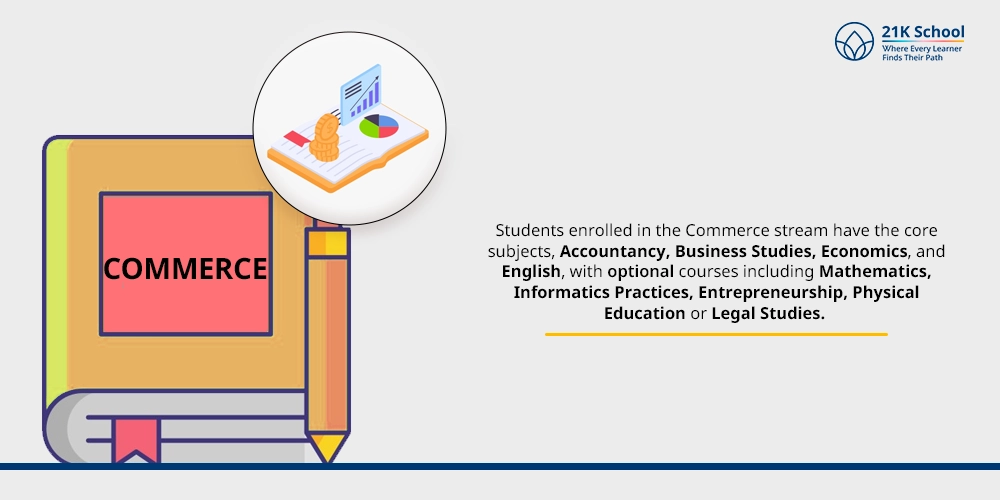
Students enrolled in the Commerce stream have the core subjects, Accountancy, Business Studies, Economics, and English, with optional courses including Mathematics, Informatics Practices, Entrepreneurship, Physical Education or Legal Studies.
(However, the availability of the subjects will vary as per the schools offering)
| Subjects | Programs |
| Subject 1 | English |
| Subject 2 | Accountancy |
| Subject 3 | Business Studies |
| Subject 4 | Mathematics/ Psychology/ Artificial Intelligence/ Legal Studies/ History/ Yoga/ Hindustani Music Percussion Instruments/ Applied Arts |
| Subject 5 | Economics / Physical Education/ Fashion Studies / Hindustani Music – Vocal/ Hindustani Music – Percussion Instruments / Early Childhood Care & Education/ Biology |
3. Humanities/Arts
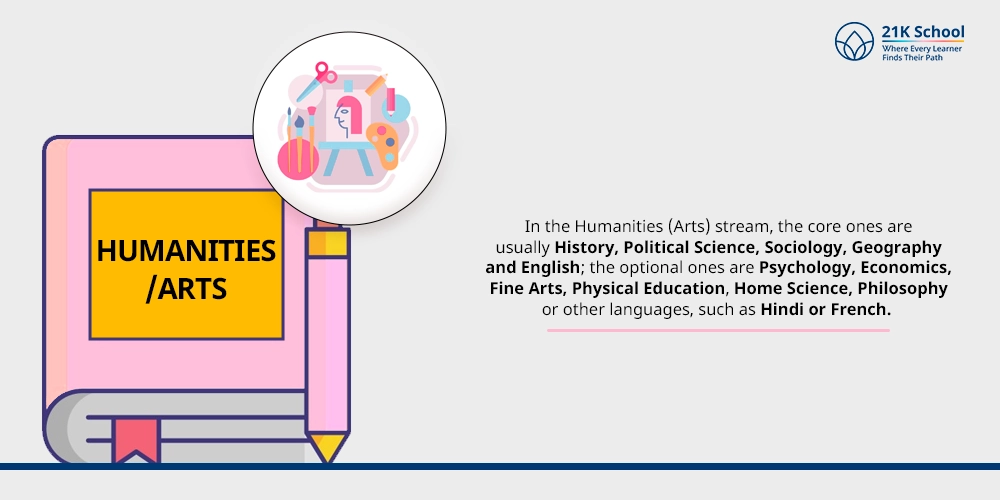
In the Humanities (Arts) stream, the core ones are usually History, Political Science, Sociology, Geography and English; the optional ones are Psychology, Economics, Fine Arts, Physical Education, Home Science, Philosophy or other languages, such as Hindi or French. It is the most versatile stream and interdisciplinary learning .
(However, the availability of the subjects will vary as per the schools offering)
| Subjects | Programs |
| Subject 1 | English |
| Subject 2 | Political Science |
| Subject 3 | History |
| Subject 4 | Mathematics/ Psychology/ Artificial Intelligence/ Legal Studies/ History/ Yoga/ Hindustani Music, Percussion Instruments/Applied Arts |
| Subject 5 | Economics / Physical Education/ Fashion Studies/ Hindustani Music – Vocal/ Hindustani Music, Percussion Instruments/ Early Childhood Care & Education |
Things to Know About CBSE Class 11 Subject Choice Policy
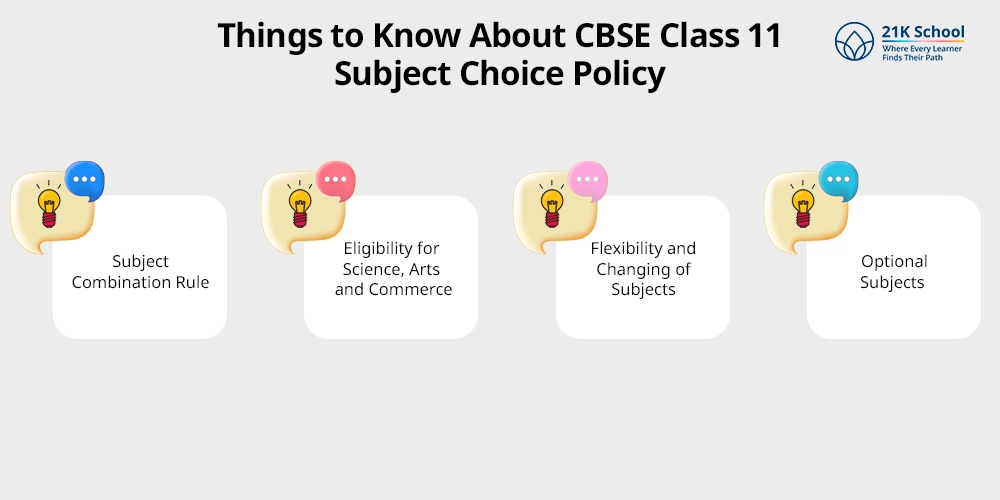
The students ought not to forget the policy and subject combination rule in the selection of the CBSE class 11 subjects combination. The 11th-class subject policy of the CBSE is as follows.
1. Subject Combination Rule
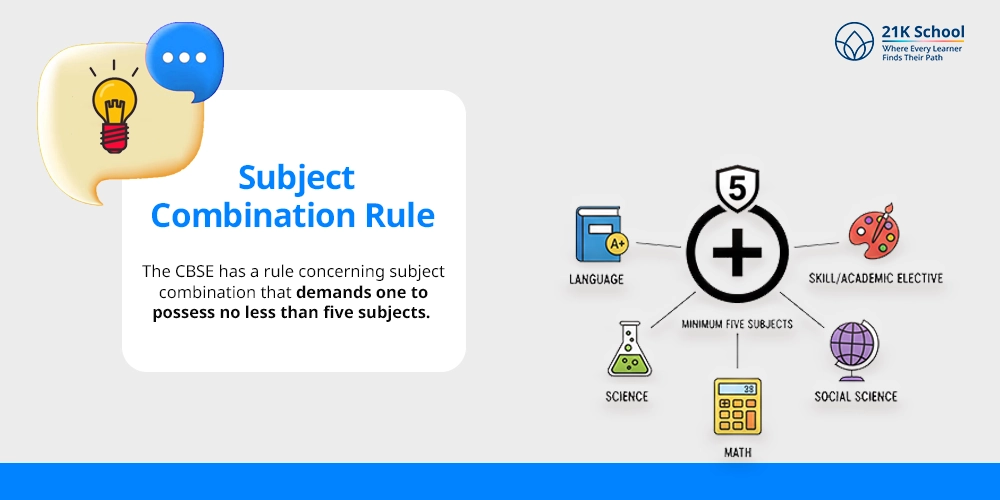
The CBSE has a rule concerning subject combination that demands one to possess no less than five subjects. It has one subject in English or Hindi (elective) and four elective subjects. It is also in the schools that an optional subject or an extra subject may be offered and may be a subject in an academic or a skill-based learning .
2. Eligibility for Science, Arts, and Commerce
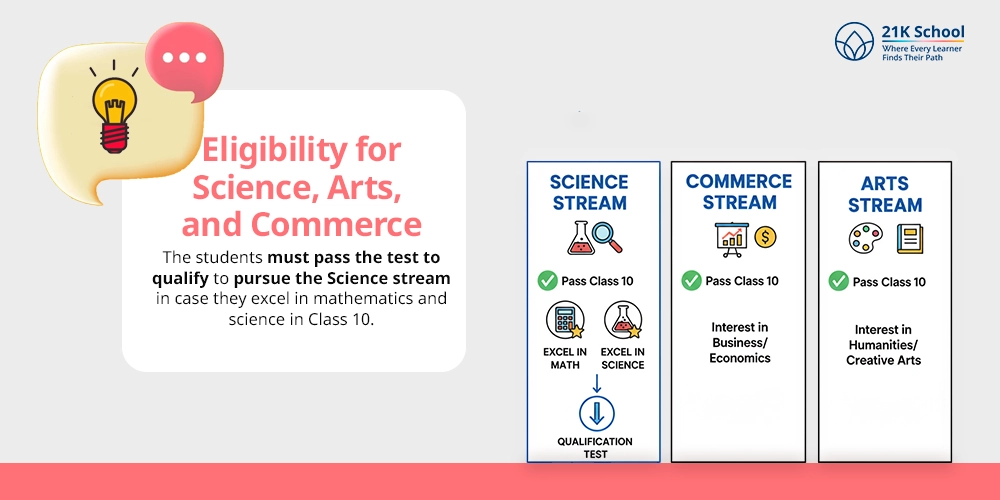
The students must pass the test to qualify to pursue the Science stream in case they excel in mathematics and science in Class 10. In the Science stream, mostly there are Physics, Chemistry, Mathematics, Biology or Computer Science or English.
The interested individual can take the Commerce stream in business, economics and accounting. Any student can enrol in the Humanities or Arts stream and its subjects of study are History, Political Science, Geography, Psychology, Sociology and Fine Arts.
3. Flexibility and Changing of Subjects
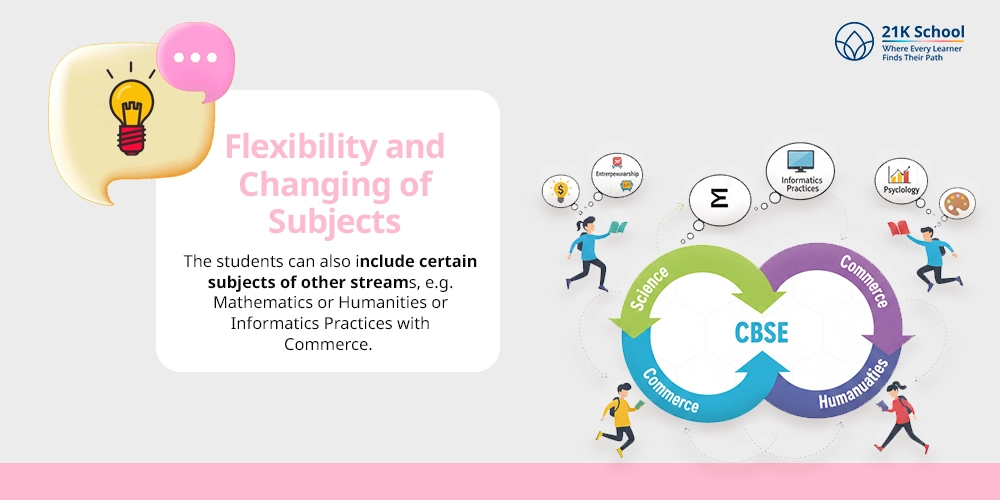
CBSE is also lenient on subject selection and change. The students can also include certain subjects of other streams, e.g. Mathematics or Humanities or Informatics Practices with Commerce.
CBSE provides the student with a chance to change the subject at his/her request following Class 11, but within a restricted timeframe that has to be accomplished before July 15th in the current academic year and in compliance with the school. In addition, students are not permitted to switch their subject of study once they have passed Class XI.
4. Optional Subjects
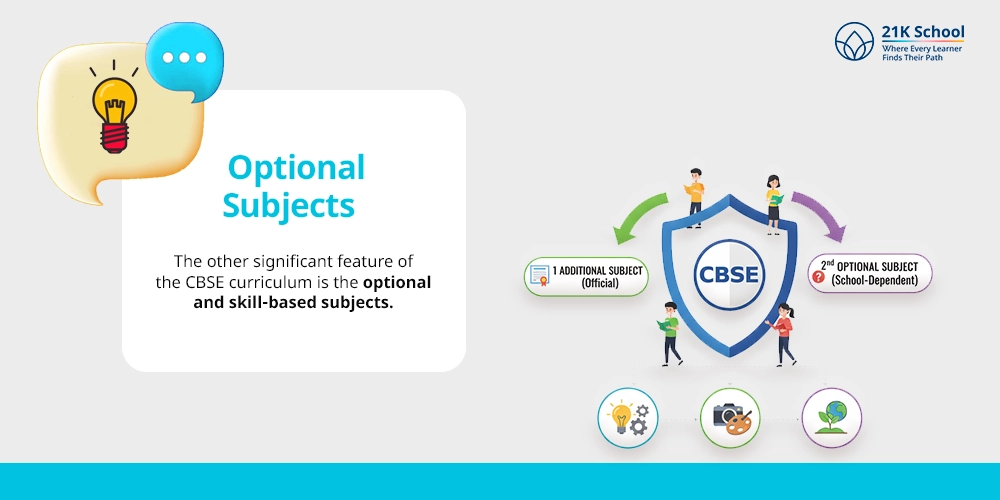
The other significant feature of the CBSE curriculum is the optional and skill-based subjects. CBSE permits 1 additional/ optional subject by law. There are schools that can allow 2, and however, 1 is only officially recognised.
That can either be an additional academic course or a job skills course such as Information Technology, Artificial Intelligence, Tourism, or Entrepreneurship, Physical Education and so on..
Explore is Hindi compulsory in cbse class 11 .
Ending Note
The policy of CBSE Class 11 subject choice and combination policy provides the students with an option to determine their own academic course according to their interests, strengths, and further aspirations.
Students now can mix the subjects in the streams and optional subjects or skills-based subjects, which offer the student a more personalised learning and career-oriented education.
Such a flexible method does not merely address the differences in learning styles , but it also helps students make good decisions about further learning and professional development .

